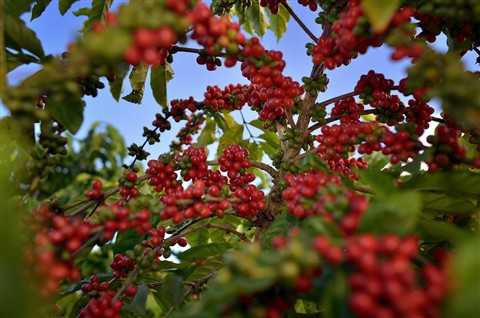SAO PAULO, Brazil – The harvesting of the robusta coffee crops (2021/22 season) are ending in Rondônia State (RO), reports Cepea. According to the agents consulted by Cepea, the weather favored activities. Until June 25, from 80 to 90% of the output expected for RO had been harvested. Thus, the harvesting is supposed to end in the first fortnight of July.
The beans currently being harvested are of good beverage quality, sieve and heterogeneous number of defects between batches, since flowering too place in different periods and also due to the drought in 2020. In general, beans quality is slightly lower than that last season.
In Espírito Santo (ES), the harvesting advanced too, totaling, until the end of June, from 65 to 75% of the expected output. Differently from the scenario in Rondônia, the weather favored the development of robusta crops in ES (2021/22 season), resulting in satisfactory beverage quality and sieve.
However, Cepea collaborators have reported sporadic issues related to the lack of labor in some regions in ES – from where workers are leaving to crops in Bahia and Minas Gerais –, and that activities may be slower in the coming weeks. The harvesting in ES is expected to end between the second fortnight of July and early August.
Arabica
The harvesting of arabica crops advanced in Brazil in June. Until the end of the month, from 30 to 38% of the output expected in the 2021/22 season had been harvested in the Zona da Mata (MG). In Garça (SP), activities had reached from 20 to 30% of the area, and in southern Minas Gerais, from 15 to 25%. In northwestern Paraná, 15% of the crops of arabica coffee had been harvested, and in the Mogiana (SP), from 10 to 20%.
It is worth to mention that the harvesting pace has been slower than in the previous seasons, due to the late and uneven flowering and ripening of beans this season, due to the drought in 2020.
In general, although a crop failure has been confirmed in all producing regions, beverage quality and sieve are considered satisfactory, according to collaborators. On the other hand, some batches have high shares of defected beans, which reflects the uneven development of some crops and the higher volume of green beans.


















